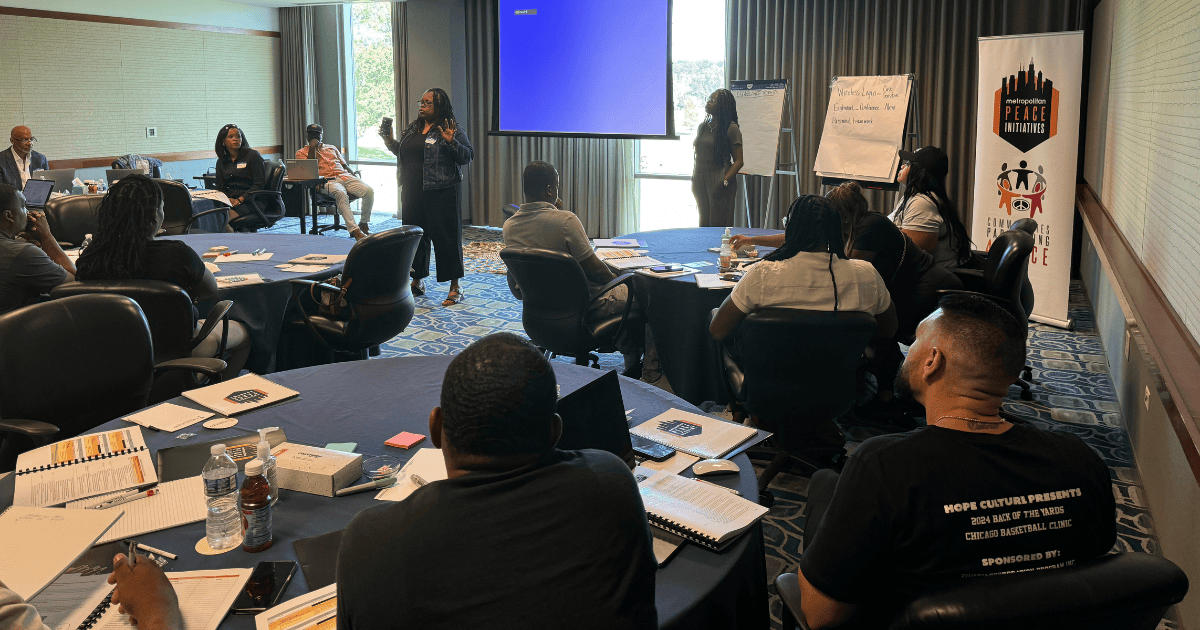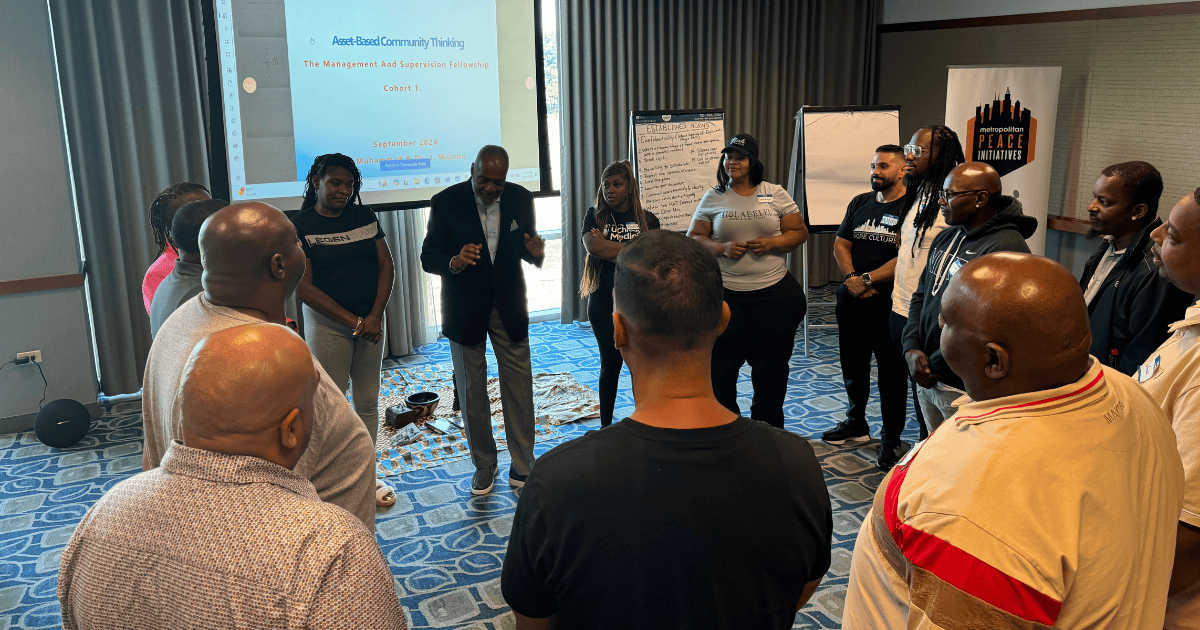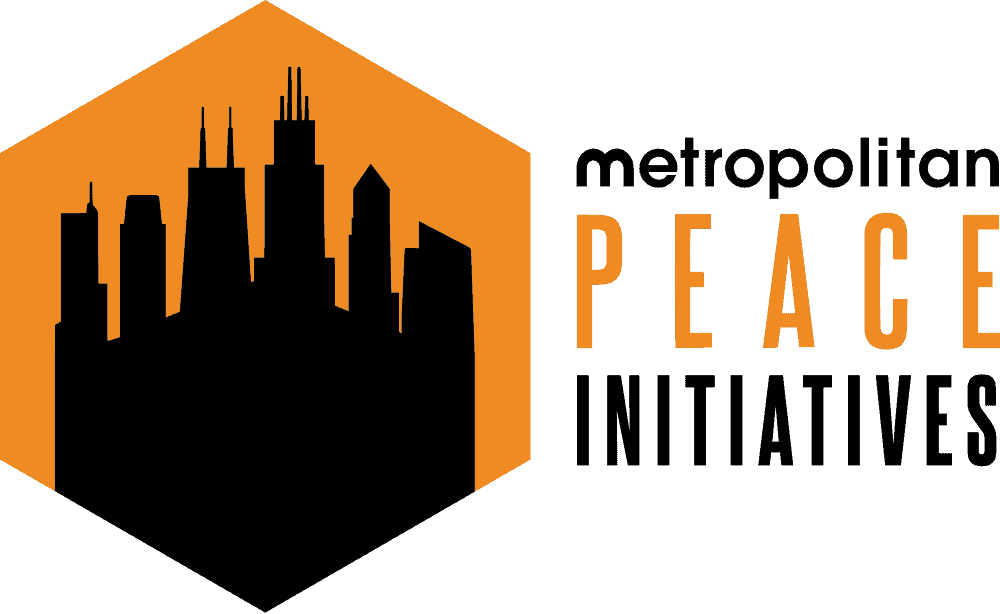Building Leaders for Community Violence Intervention: The Metropolitan Peace Academy Management and Supervision Fellowship

The Metropolitan Peace Academy (MPA) Management and Supervision Fellowship is shaping the next generation of leaders in community violence intervention (CVI). Facilitated by a team of expert consultants and designed for those already on the front lines of violence prevention, the fellowship equips participants with critical leadership and management skills.
At the heart of this fellowship is a powerful vision: to bridge the gap between frontline outreach workers and senior leaders within the CVI community. In its first year, the fellowship brought together 15 individuals from community violence intervention organizations for an intensive two-day retreat before sessions begin twice a month for the next six months.
The facilitators—Danielle Thompson Davis, Tiffany Lyles Williams, Troy Harden, Ph.D., Jerry Watson, Ph.D., Necole Muhammad, Samuel Castro, Director of Strategic Initiatives & Partnerships at Institute for Non-Violence Chicago, Steve Perkins, Director of Field Instruction, and Dr. Vanessa Perry DeReef, Chief Training Officer at Metropolitan Peace Initiatives—led sessions that delved into CVI ecosystem framing, management standards, and leadership principles.
Dr. Perry DeReef reflected on the origins of the fellowship: “We started in 2018…launching outreach, and then eventually case management and, ultimately, victim services. We began to see a need based on our cohort members’ responses. After they graduated, a lot of them were promoted into supervisory positions without necessarily having the skill set. So, we wanted to develop a fellowship. This fellowship was birthed out of that.”
As Dr. Harden, one of the fellowship’s key facilitators, explained, “The purpose of today was, and is, to support the overall CVI work by developing skills and practices for people who are emerging leaders moving into management. Maybe they just became supervisors for the first time or have been doing it for a minute. There appears to be a gap in the field between those who are considered outreach workers or frontline workers and those in senior leadership positions.”
Participants were engaged in sessions that explored the unique dynamics of CVI work, from managing teams in high-crisis situations to navigating the trauma associated with gun violence.

Dr. Harden emphasized the specific skills needed in this field: “There’s a special set of characteristics and skills that are needed to deal with public safety issues, the high level of stress, and the trauma associated with the impact of gun violence. To be able to supervise in those high-crisis situations requires continuous development and nurturing to perform in an exceptional and impactful way.”
The retreat also helped participants understand where they fit within the CVI leadership framework, allowing them to leave with a clear sense of their leadership category and how to bring those insights back to their organizations.
Samuel Castro, Director of Strategic Initiatives & Partnerships at INVC reminded participants of the importance of the fellowship, “[This is important] I truly believe the better you all are, the better the hood will be.”
“We have witnessed the growth of the fellows who weren’t just coworkers but graduates of the outreach and case management cohorts,” Dr. DeReef noted. “They have now built their capacity, and you can see that growth since coming through the MPA originally. Seeing them now, they are more confident; they speak about the work in a way that really displays how much their capacity has grown, how much they have been stretched, and how much they will be able to contribute to this field.”
The fellowship is not just about learning; it’s about transformation. Over its first two days, the participants were challenged, empowered, and equipped with the tools needed to excel in their roles as emerging leaders in the fight against gun violence.
With the guidance of seasoned experts and the support of their peers, participants will end the program in February 2025 better positioned to lead their teams and contribute to the broader movement for community safety.
